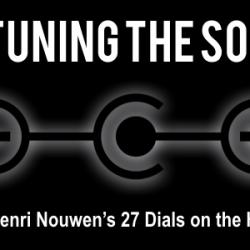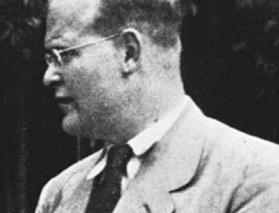Lenten Question of the Week: What distractions or addictions are keeping you apart from God, love, and abundant life?
It’s an interesting question. Richard Rohr teaches that 95%+ of human thought is repetitive and useless. If he’s right then the answer to that question is: me.
I am the distraction, the addiction that keeps me from the presence of God.
When I was in elementary school I lived just down the block from a girl who was in my class. My first memories of her were that she was extremely smart, and could run faster than anyone else in our grade including all the boys. Somewhere around third grade her dad moved out of their house and her parents divorced. One day as a few of us were walking home from school, she told us that her dad left “because he had to go find himself… whatever that means.” You didn’t have to be grown up to sense the pain in her voice. I’m not sure I knew at the time just what trying to find yourself meant, but I could easily track the fallout as it worked its way through her life over the next few decades
When the great psychologist Abraham Maslow constructed Maslow’s Hierarchy of Needs, he placed self-actualization at the top of the pyramid. At the bottom of the pyramid are the basic physiological needs such as food, water, shelter, safety, health, and security. In the middle sections of the pyramid are the more complex needs which are much harder to find and maintain; needs such as friendship, intimacy, confidence, and self-esteem. The top and final section of the pyramid is self-actualization. For Maslow (and subsequent generations of pop-psychologists and cultural icons from Richard Simmons, to Oprah, to Dr. Phil), the path to human transcendence runs through self-actualization. This has become a cultural maxim. But is it true?
Lent is a powerful counter-narrative to the self-actualization narrative so prevalent in our day. Our culture tells us that in order to find the good life, you must discover who you really are, and then be true to that discovery above all else. Within this narrative, life is really about achieving our true potential. On the surface it sounds pretty good. But Lent beckons us to dig beneath the surface, to see how this narrative actually runs contrary to the gospel story
Once while he was teaching, Jesus told his followers, “Unless a grain of wheat is falls into the earth and dies, it remains just a single grain; but if it dies, it bears much fruit. Those who love their life lose it, and those who hate their life in this world will keep it.” It’s the most strikingly counter-intuitive part of the Jesus revolution. The only way to find your life is to lose it for the sake of the gospel – or as Alexander Schmemann says “for the life of the world.” Self-actualization is the way of death
In Western society – America in particular – living the good life consists of getting what we want. You want to find your life? Live it! You want to have a good life? Then you have to figure out what your deepest desires are and then find a way to attain those things. Enjoy and appreciate them to be sure, but first you must possess them. Within this narrative, life becomes a battle to see who can obtain the resources they need to get what they want out of life. It is at this point that Jesus’s teaching could not be more at odds with the teaching of our culture.
This short passage from John 12 connects us to the greatest stream of wisdom concerning what it means to be a human being. Unless the grain of wheat dies, it remains just a grain of wheat. There’s nothing wrong with a grain of wheat. It’s a perfectly fine grain of wheat. Still you can’t do much with a single grain. It won’t even feed one person. But if t dies, that single grain can turn into hundreds of grains of wheat, and those hundreds into thousands, and so on. Packed into that single tiny little grain of wheat is the potential for an incredible amount of life. But none of this will be realized unless the grain of wheat dies, the seed germinates, and new life comes from death.
In light of this it’s interesting to me that Lent begins with Ash Wednesday – a time to remember our own death. “Remember you are dust,” we say, “And to dust you shall return.” We cannot experience Lent, nor can we experience life, unless we are ready to die to ourselves each and every day.
Jesus teaches us that our lives are like a grain of wheat. We can live them selfishly. We can self-actualize until the day we die, but this is viewed as a kind of waste. If we choose to die – to lay down our lives for other people and for the life of the world – then we will find the life that is truly life.
What distractions are keeping me from the abundant life? Me. I’m the distraction.












